MercoPress. South Atlantic News Agency
Environment
-
Tuesday, August 10th 2021 - 17:37 UTC
International Day of the World’s Indigenous Peoples: time to uphold and enforce rights

The International Trade Union Confederation (ITUC) (*) is celebrating the cultural and linguistic richness of indigenous populations. We recognize their knowledge of the natural world that can provide leadership and guidance to preserve ecosystems in the face of the environmental climate crisis.
-
Tuesday, August 10th 2021 - 08:30 UTC
UN climate change report heralds “unprecedented” disasters

A new study released by the Intergovernmental Panel on Climate Change (IPCC) foresee the planet's temperature would reach +1.5 ºC compàred to pre-industrial levels by the year 2030, which is ten years earlier than forecast in 2018.
-
Monday, August 9th 2021 - 15:18 UTC
Latest “massive melting” of Greenland ice sheet could cover Florida with five centimeters of water
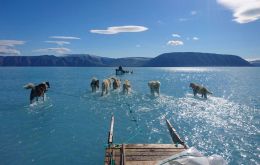
The Polar Portal website has reported that the Greenland ice sheet recent “massive melting event” released enough mass to cover the state of Florida with 5 centimeters of water.
-
Monday, August 9th 2021 - 08:19 UTC
Deforestation of Amazonia takes turn for the worse despite Brazilian President's promises

Brazil's National Institute Institute for Space Research (Inpe) has released over this past weekend updated data regarding the deforestation of Amazonia between August 2020 and July 2021.
-
Friday, August 6th 2021 - 07:28 UTC
Green light to build an International Antarctic Center in Punta Arenas

Punta Arenas in the extreme south of Chile will host the International Antarctic Center, CAI, a long-time project several times delayed but which finally was given the green light, and should begin to be built in the near future with an investment demanding some 75 million US dollars.
-
Friday, August 6th 2021 - 07:19 UTC
Chile: Shortage of water reported in Santiago Metropolitan Region
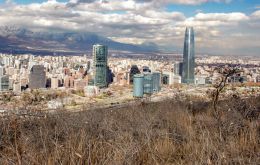
Chile's Minister of Public Works Alfredo Moreno Thursday admitted Santiago's Metropolitan Region was going through “the worst drought in history,” which has prompted “exceptional measures.”
-
Thursday, August 5th 2021 - 20:17 UTC
US promoting Endangered Species Act for Emperor penguin colonies
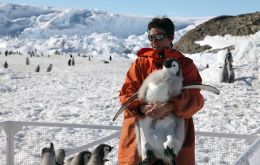
By Stephanie Jenouvrier (*) Emperor penguins thrive on Antarctica’s coastlines in icy conditions any human would find extreme. Yet, like Goldilocks, they have a narrow comfort zone: If there’s too much sea ice, trips to bring food from the ocean become long and arduous, and their chicks may starve. With too little sea ice, the chicks are at risk of drowning.
-
Wednesday, August 4th 2021 - 07:03 UTC
Tierra del Fuego fears the significance of Falkland Islands new port

The province of Tierra del Fuego, on Tuesday, denounced UK's construction company BAM Nuttall for operating with no authorization in the Falkland/Malvinas Islands district, currently under British control but over which Argentine claims sovereignty.
-
Tuesday, August 3rd 2021 - 19:51 UTC
Southern right whales at South Georgia acoustic messages, BAS Project report
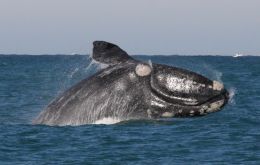
Scientists from British Antarctic Survey (BAS), Scottish Association for Marine Science (SAMS), and international collaborators have this week published the first detailed research on the sounds made by southern right whales on their high latitude feeding grounds at South Georgia.
-
Tuesday, August 3rd 2021 - 06:32 UTC
Blue Belt Program launches Training Platform for UK Overseas Territories
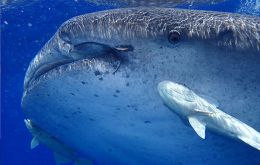
The Blue Belt Program has launched a comprehensive online training platform for the UK Overseas Territories. This will provide training and development of skills across a wide range of marine management themes, free of charge.
